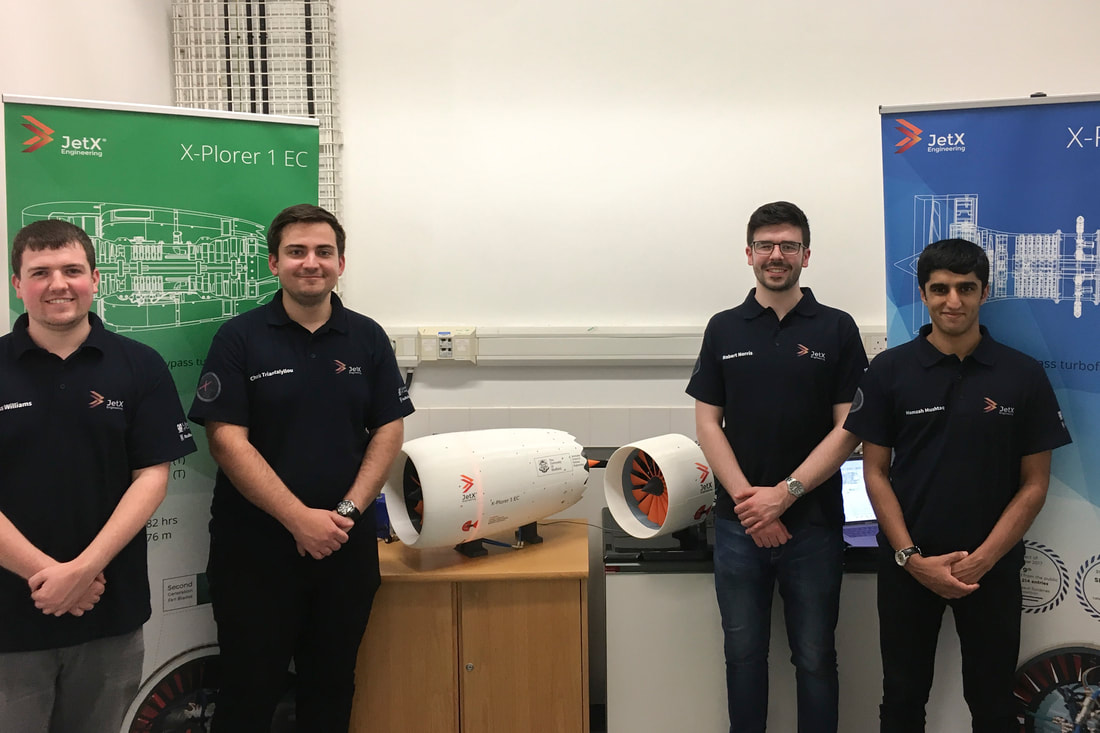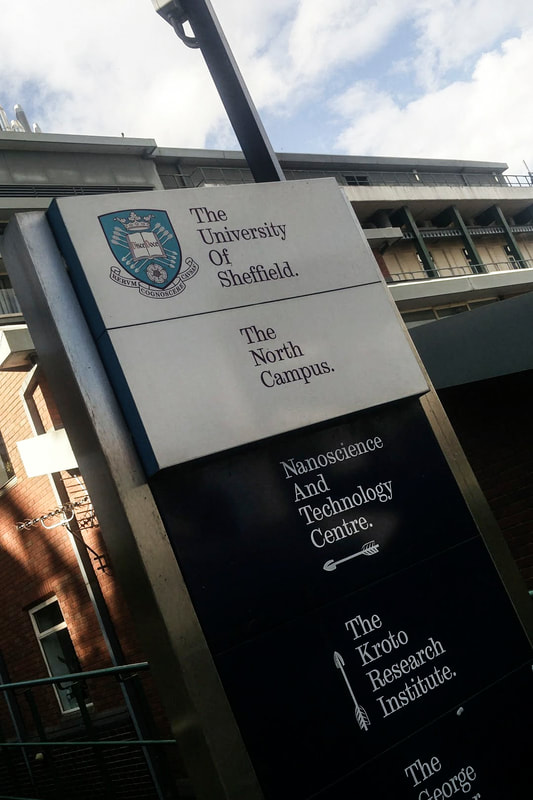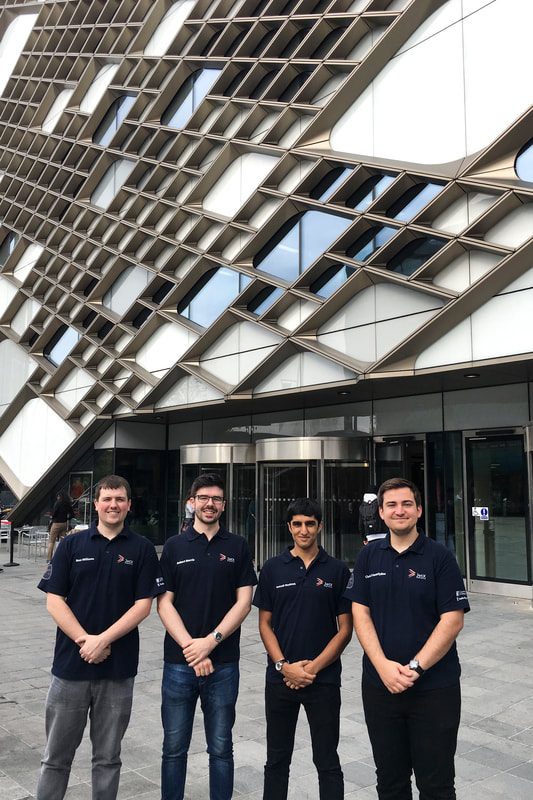|
Last week, we had the pleasure of visiting the University of Sheffield to deliver the second ever jet engine model designed and manufactured by us, the X-Plorer 1 EC. The end of the intensive 9-month redesigning, prototyping, assembling and testing period, marks the official start of our collaboration with the Control, Monitoring & Systems Engineering University Technology Centre (UTC) within the University of Sheffield. Established in 1993, the UTC is leading research in systems and control for Rolls-Royce, supporting operations in design, development, manufacture and service provisions for integrated power systems that are used in the air, on land and at sea. The collaboration aligns perfectly with our long-term goals and objectives which, on one hand, involve continuing and growing the educational impact of our programmes for more students and through more channels (including curriculum integration) and on the other hand facilitating higher level research in areas where our engines are more attractive to use due to the lower cost and simpler operation. JetX president, Chris Triantafyllou, added: The X-Plorer 1 showed how useful it can be as an educational tool, besides being an original project that we started from scratch. Even though we were always willing to demonstrate how it can be used as an experimental platform in aerospace research, the right opportunities hadn't come up. Our collaboration with ACSE enables us to take this step in a control and systems engineering context, whilst enabling the team in Sheffield to demonstrate or test their work and devices in a whole new setting. About the ECEven though the X-Plorer 1 EC shares a lot of common features with its predecessor, it is far from identical! Although implementing all the improvements planned for the X-Plorer 2 would be desirable, this is currently still in the early design process and it would delay the start of our work with Sheffield by over a year. Our solution was to use the same core as the XP1 as the starting point and complete a number of crucial upgrades and design changes based on our experience from developing the X-Plorer 1. The full list of improvements can be found on the dedicated programme page which will be published in the next couple of weeks, but to list a few, the EC features:
3D printing of the EC started on the 10th of April and was completed 164 days later, transforming a total of 670 parts from CAD to reality for main components, development parts and spares. This added 2588 3D printing hours on our printers, on top of the 2942 hours spent on the development of the X-Plorer 1! July 2018 was our busiest month which saw 130 parts produced. Testing & Upcoming WorkDuring our visit to the Kroto Research Institute, we also had the chance to run both engines, setting two small performance records! The major objective of the change in the relative number of stators in the turbine was to improve the LP performance, which showed to be lacking compared to HP in the 2017 tests. At 200 LPM, the EC spun at 197 RPM, nearly 1.8 times faster that the X-Plorer 1.
Just before our departure, we also ran the X-Plorer 1 up to the limits of the provided air supply, with the HP shaft reaching speeds of up to 1657 RPM; over 200 RPM higher than before. Back in Glasgow, we are currently getting ready to brief the team, including the new recruits, and resume work for the X-Plorer 2 and Kronos. We already have a couple of specific areas to focus our attention on, which include tasks of relevance to the EC. In Sheffield, the team will spend the next couple of weeks familiarising themselves with the engine before conducting the first set of tests on fault diagnostics around the fan! In the meantime, MSc students within ACSE can find out more information internally on how to work on a project related to the X-Plorer 1 EC. We have a lot of exciting work ahead for all teams and we are looking forward to strengthening our ties with the University of Sheffield through a strategic expansion of our working areas to include aerospace research in the future. Comments are closed.
|
JetX Engineering NewsFor all latest updates on the club, the team & the project. Archives
November 2020
Categories
All
|
The Project |
The People |
|
© COPYRIGHT 2014-2021. JetX Engineering ®




 RSS Feed
RSS Feed